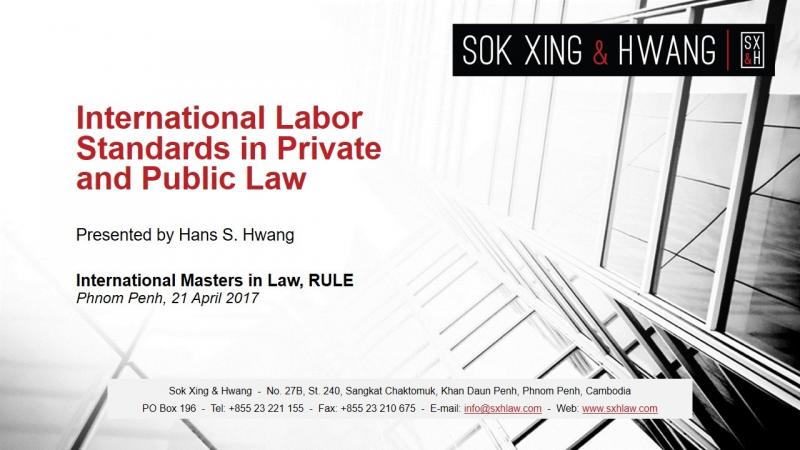International Labor Standards in Public and Private Law

What role do international labor standards play in a global economy? What role do they play in individual enterprises, industries and nations? Do international labor standards really level the playing field and prevent a race to the bottom, or are they simply protectionism in disguise? What happens when international labor standards conflict with national standards? These and other questions were explored during a presentation by Mr. Hans S. Hwang on International Labor Standards as part of the Masters of International Law Program at RULE Guest Lecture Series on 21 April 2017.
The advantages of international labor standards are subject to debate. Proponents assert international labor standards protect workers, ensure decent working conditions and prevent a race to the bottom. By setting minimum standards for fair labor practices, international labor standards help to level the playing field among competing businesses and prevent the deterioration of rights, wages and working conditions for workers in an economy. Critics retort international labor standards are costly to implement, raise problems of universality and are really just protectionism in disguise. While the debate remains unsettled, it has not stopped the actual implementation of international labor standards by and among countries, international agencies and multinational companies operating along the global value chain.
As a guest lecturer to the Masters of International Law Program at the Royal University of Law and Economics, Mr. Hans S. Hwang, Senior Director of Sok Xing & Hwang, presented the legal framework for the establishment of international labor standards, reviewed the debate regarding their benefits and drawbacks, and discussed the actual application of international labor standards in Cambodia and elsewhere.
